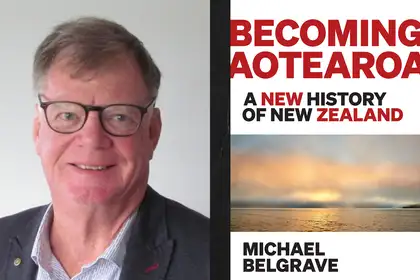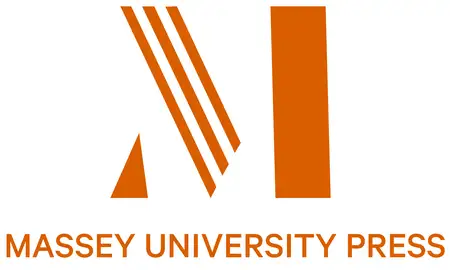
Becoming Aotearoa: A New History of New Zealand was born from the need for a more nuanced understanding of the country’s history. It explores how tangata whenua and subsequent migrants have shaped a distinct society through social contracts. While often frayed, these contracts reveal the complexities that the book examines to show how the intricacies of the past inform the present and impact the future.
As a prolific writer and historian, Professor Belgrave has published previous books on the Treaty of Waitangi and Māori history, having also served as a research manager at the Waitangi Tribunal. In the aftermath of the mosque shooting in Christchurch in 2019, he recognised the need for historians to provide a better context for understanding New Zealand’s history, marking the beginning of Becoming Aotearoa.
“There are so many stories to be told about this country’s history, but providing a framework for understanding Aotearoa New Zealand as a country must be one of them. Without a national perspective, it is difficult to see how all these other stories relate to each other. Although Māori faced significant barriers to equality, the primary challenge wasn’t so much exclusion as the forces of assimilation and inclusion. Māori engagement with modernity and resistance to assimilation needed to be a leading part of the story.”
A standout chapter in the book details the events at Waitangi in 1840. What sets it apart, Professor Belgrave explains, is the exploration of a revised narrative that challenges past interpretations of the signing of the Treaty, particularly those influenced by Ruth Ross’ 1972 argument.
“There’s a prominent narrative that the translation of the English draft of the Treaty of Waitangi was so poorly done that it could not have been understood as the British intended, which, if anything, confirms rather than extinguishes Māori sovereignty. In this chapter, I demonstrate that Māori participants were articulate and well-informed, having made their minds up even before Henry Williams produced the Māori text. The Māori advocates for the governor saw it as a sacred compact, confirming a relationship between the rangatira and the Crown.”
On the subject of Governor George Grey, Professor Belgrave speaks on his many contradictions.
“He lied effectively and strategically, was manipulative and autocratic, and was responsible for more Māori land loss than all other governors and premiers combined. Yet he enjoyed being part of the Māori world, had the respect of many rangatira and promoted Māori equality without cultural assimilation. He would most likely see the current Māori economic and cultural revival as a vindication of his confidence in Māori futures.”
Professor Belgrave hopes that readers of Becoming Aotearoa will recognise that the history of New Zealand since 1840 is not just a history of two separate peoples, but of multiple peoples, sometimes divided, sometimes not, sharing the same land and responding differently to the same economic and social forces flowing into New Zealand.
“Māori have insisted on equality in ways that maintained iwi and hapū identities, relying on whatever constitutional, legal and political means available to sustain this aspiration. All attempts to force Māori to stop being Māori over the last 185 years have been thwarted by Māori resilience,” Professor Belgrave says.
While there are some who feel the country’s history reveals something exceptional about New Zealand, Professor Belgrave expresses his discomfort with that perspective.
“If the notion of New Zealand exceptionalism feeds some smug sense of superiority, I whole-heartedly resist it. But I can still hope that Aotearoa New Zealand will continue to show its preference for the rule of law and the liberal idealised at Waitangi and in Wakefield’s scheme for colonisation.”
Becoming Aotearoa: A new history of New Zealand was published by Massey University Press in October 2024 and is available in bookstores nationwide and on the Massey University Press website. Click here to read an extract.
Related news
Massey University Press: Elevating research and reputation through publishing
Launched in 2015, Massey University Press is a vibrant platform for scholarly and creative voices that enrich Aotearoa New Zealand’s cultural landscape.

Caldwell uncovered: Remembering the legacy of a New Zealand hero
Historian Dr Adam Claasen explores the extraordinary life of one of New Zealand’s great military heroes, First World War fighter ace Keith Caldwell, in his forthcoming book Grid.

Eight new Professor Emeriti titles granted
Te Kunenga ki Pūrehuroa Massey University is proud to announce eight new Professor Emeriti, conferred by the Honorary Awards Committee.
